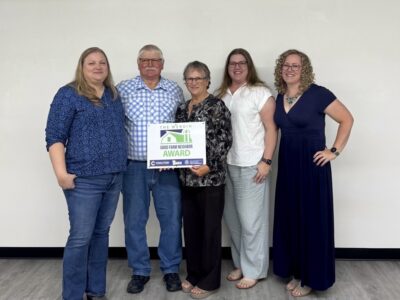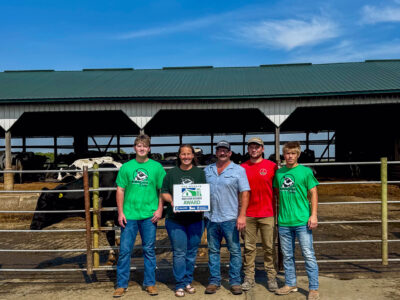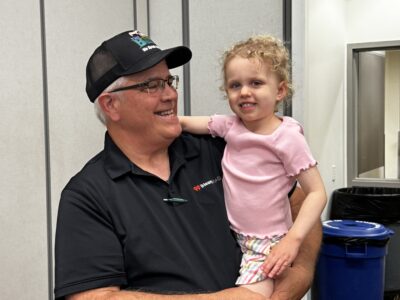Being a Successful Farmer Means Being a Good Neighbor
04-08-2016 in Good Farm Neighbor
Raising livestock and poultry takes time, money and attention to detail. It also requires farmers who are growing their livestock farms visit with their neighbors about their intentions prior to moving dirt. Farmers wanting to build new livestock and poultry barns need to be respectful of their neighbors and willing to communicate their plans to them.
Community acceptance is key for farm families wanting to build a new livestock barn or grow their existing farm. The days of putting up a new barn or feedlot without talking to your neighbors and hoping they will “just get over it” are long gone. Character certainly counts when it comes to raising livestock and poultry in today’s society.
Neighbor relations is an ongoing effort and it’s critical to the future success of your farm to communicate with your neighbors – at least annually. In addition to personal notification prior to construction, here are other steps farmers wanting to build livestock barns should take in order to maintain good relations with neighbors:
- Exceed all required separation distances from the Iowa DNR
- Be mindful that some places are better to build a new livestock or poultry barn than others – regardless of meeting separation distances
- Update interested neighbors about your farm and family
- Describe the new technologies and best management practices being used
- Discuss modern manure incorporation methods and timing
- Notify neighbors before manure incorporation begins
- Consider planting windbreaks to enhance aesthetics and mitigate potential odor through the CSIF’s Green Farmstead Partner program
- Contact CSIF and arrange for a no-cost and completely confidential farm visit to discuss your plans. Visit www.supportfarmers.com or call 800-932-2436
It’s critical livestock farmers take the first step in personally talking to neighbors and others in the community about their plans. The Coalition encourages farmers and neighbors to work together to build relationships, communicate concerns and talk about expectations. Because at the end of the day, farmers who manage their livestock barns and feedlots the right way will have a farm they and their communities can be proud of.
Recommended News

Southeast Iowa farm family honored for contributions to their community, care for their land and livestock
Mike and Diana, along with the help of Mike’s brother Mark, operate Rysdam Family Farm, a diversified cow/calf beef cattle operation that also raises corn, soybeans, hay, wheat and oats....
Read More
Multi-generational Bremer County family to be honored during a ceremony at their farm
Jeremy and Sara Ebaugh, along with their three sons, John, Joe, and Jeb, operate Ebaugh Dairy, a fourth-generation farm that is home to Holstein dairy cows, a cow/calf herd and...
Read More
Quinn Honored as 200th Good Neighbor
Bob Quinn, long-time WHO radio ag broadcaster, once said, “I’m sometimes asked how we find a good farm neighbor. I tell them, ‘Raise your window shade and look across the...
Read More